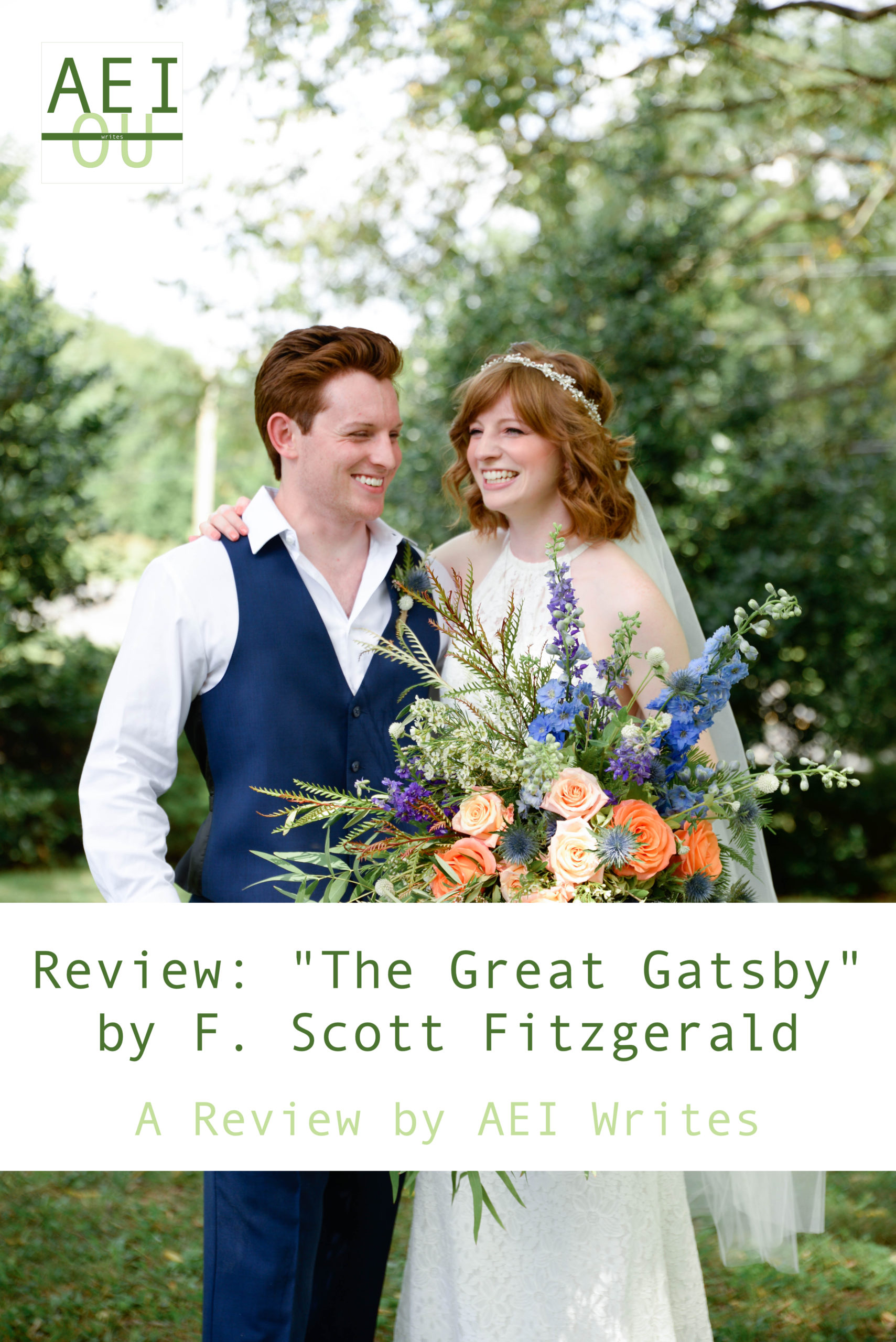In honor of my brother’s birthday, we’re taking a brief break from children’s literature. (I mainly made this decision because I thought I owned The Lightning Thief and I don’t… Whoops!) So instead of looking at the books my brother and I read together as kids, we’re discussing my brother’s favorite grown-up book. How does faith mesh with the American Dream? Time to talk about glamour, green lights, and The Great Gatsby!
Glamour and Green Lights

To be honest, I’ve written so many literary analyses of The Great Gatsby in my life that I could bang my head against the wall. I think that’s why I enjoy bantering with my brother about “old sport” and “boats against the current” so much. After all, the book’s final line is one of the top two Greatest Last Lines of All Time. (I mean, Winnie the Pooh poses tough competition.) As an English major, I love having a book to discuss with my non-reading brother. (When my brother was seven, he told my mom that he didn’t need to know how to read. He was going to be a major league baseball catcher, and he knew enough to read road signs. My mom brilliantly told him that he had to learn to read his baseball contracts. My quick-witted brother didn’t really have any comebacks after that.)
As an aspiring entrepreneur, my brother finds the book’s discussion of the American Dream very interesting. (Of course, he wants to do everything the legal way. None of us want him to wind up dead in a swimming pool.) While the glitz of the rich holds universal appeal, the pitfalls the book portrays help us analyze making money ethically.
Faith in The Great Gatsby by F. Scott Fitzgerald

I can’t say that F. Scott Fitzgerald put any faith-based values in The Great Gatsby. Truthfully, every character behaves corruptly regardless of their social status. Nick holds the most morals of the entire book, and he ultimately flees back to the boring mid-west where he grew up. However, the blatant corruption doesn’t mean the book holds no value to Christians.
While we may not want to emulate the characters in The Great Gatsby, we can certainly learn from their mistakes. Rather than amassing wealth for meaningless grandeur, we can use the fruits of our hard work to help others in need. Instead of seeking extra-marital relationships, we can encourage our family and friends to grow in God’s love. Unlike the cold pomposity of East Egg, we can care about the struggles and joys of our fellow humans because God made them. Truly, Fitzgerald so eloquently portrays corruption that it is easy to learn what not to do.

